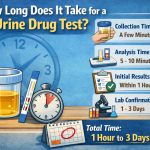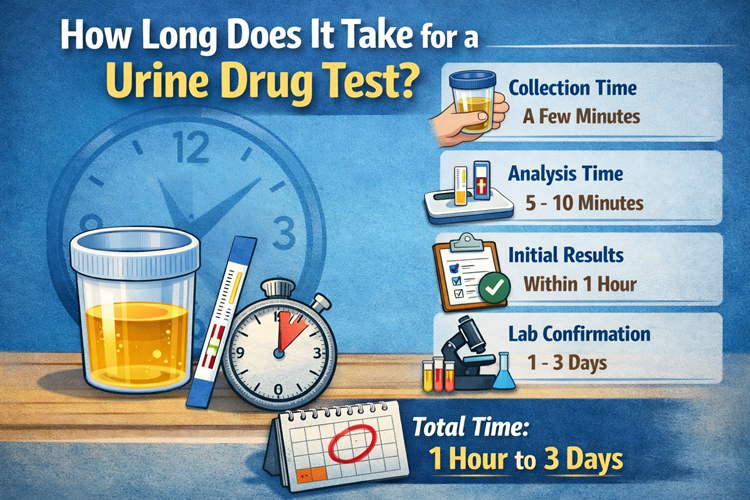Alcoholism is a common problem in the United States. According to the National Institute on Alcohol Abuse and Alcoholism (NIAAA), 28.9 million people struggled with an alcohol use disorder in 2023.[1]
While it is okay to partake in drinking now and then, some people have a hard time controlling how much they consume. If you find that you are drinking often and in large amounts, you could have an alcohol use disorder. You might be in denial of your drinking problem if you are not displaying obvious signs, like losing jobs, dealing with financial issues, and getting into legal trouble.
Despite the popular portrayal of alcoholism in the media, not everyone experiences it in the same way. If you have a problematic relationship with alcohol but manage to keep your work life separate from your drinking problem, you might be a high-functioning alcoholic.
Knowing the signs of high-functioning alcoholism can help you determine whether it’s time to seek professional treatment.
In this article, you will learn:
- What is a high-functioning alcoholic
- Why high-functioning alcoholism requires treatment
- What are the 6 signs of high-functioning alcoholism
What is a High-Functioning Alcoholic?
When you think of alcoholism, you probably imagine a person who drinks themselves into oblivion every night, cannot keep a job and struggles to maintain personal hygiene. While this is a subtype of alcoholism, it is not as common as you’d think.
According to the National Institutes of Health (NIH), there are 5 subtypes of alcoholism, including:[2]
- Young Adult Subtype – Young adults who suffer from alcoholism, do not experience mental health issues and rarely seek professional help. Makes up 31.5% of alcoholics.
- Young Antisocial Subtype – Alcoholics in their mid-twenties who either have a family history of alcoholism or high rates of co-occurring mental illness. Makes up 21% of alcoholics.
- Functional Subtype – Middle-aged, well-educated, and have stable jobs despite their alcoholism. Makes up 19.5% of alcoholics.
- Intermediate Familial Subtype – Middle-aged alcoholics with high rates of alcoholism in their families. Makes up 19% of alcoholics.
- Chronic Severe Subtype – The stereotype of alcoholism, where they often engage in heavy drinking, binge drinking, and get into risky situations, legal, or financial trouble. Makes up only 9% of alcoholics.
As you can see, the traditional “alcoholic” is the least common subtype. However, functional or “high-functioning” alcoholism is relatively common.
If you have high-functioning alcoholism, that means you can appear normal in your everyday life. The only time alcoholism is apparent is after work is over or on the weekends when you can “let go” and engage in alcohol consumption.
Six Signs of a High-Functioning Alcoholic
If you are worried about your drinking habits but do not see yourself as an alcoholic, you could be suffering from high-functioning alcoholism.
Six signs that indicate you are a high-functioning alcoholic include:
1. Lying About Your Drinking Habits
Do you find yourself lying to your friends or loved ones about how much you drink? Maybe you hide bottles of alcohol in places around your home or work so you can sneak a few sips. If so, you could be a high-functioning alcoholic.
2. Making Jokes to Cope With Denial
High-functioning alcoholics often deal with denial about their alcohol dependency. Sometimes, denial can cause us to lean on strange coping mechanisms, like making jokes. If you tend to joke about needing to attend Alcoholics Anonymous (AA) or rehab, there could be some truth behind your quips.
3. Leading a Double Life
When you have high-functioning alcoholism, it is common to separate your life into two parts. You present as a completely different person at work than you do at home.
For example, at work, you might be responsible, successful, and serious. When you leave your job, you might turn into the life of the party who is always drinking and having a fun time.
4. Using Alcohol to Cope With Stress
If you have high-functioning alcoholism, you probably use alcohol to cope with stress. Most high-functioning alcoholics are extremely successful, causing them to work jobs that lead to high levels of stress and anxiety. Once you go home, you rely on alcohol to help you calm down or unwind after a hard day.
5. Having a High Tolerance for Alcohol
Another warning sign of high-functioning alcoholism is having a high tolerance. Because you have learned how to conceal your alcoholism from others, you can consume large amounts of alcohol without showing signs of intoxication.
You might even boast to your friends about having a high tolerance. Unfortunately, this is not a good thing. Having a high tolerance means you drink too much alcohol and too frequently, a major sign of alcohol use disorder.
6. Getting into Risky Situations When You Drink
Lastly, you might get into dangerous situations when you drink. Because your work life is so rigid and balanced, you tend to let go once you have the chance. This means you are more likely to engage in negative behaviors while you are drunk, like getting into fights, drinking and driving, or other unlawful activities.
100% Confidential Support is Available 24/7
No matter what you’re going through, you’re not alone. Our dedicated team is here to provide a safe, judgment-free space where you can talk openly and honestly. Whether you need emotional support, resources, or just someone to listen.
We’re here for you—completely confidential and always respectful of your privacy. Call us today!
Get Connected to an Alcohol Rehab Center
If you have been struggling with alcoholism long-term, it’s time to consider your treatment options. Alcohol addiction treatment facilities offer a wide range of services, from therapy and support groups to medical detox and dual diagnosis treatment. No matter what type of help you need, the medical professionals at Solutions Healthcare are here to help you recover.
Contact us today for more information on our top-rated alcohol rehab program.
References
- The National Institute on Alcohol Abuse and Alcoholism (NIAAA): Alcohol Use Disorder in the United States
- The National Institutes of Health (NIH): Researchers Identify Alcoholism Subtypes






















